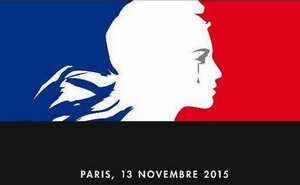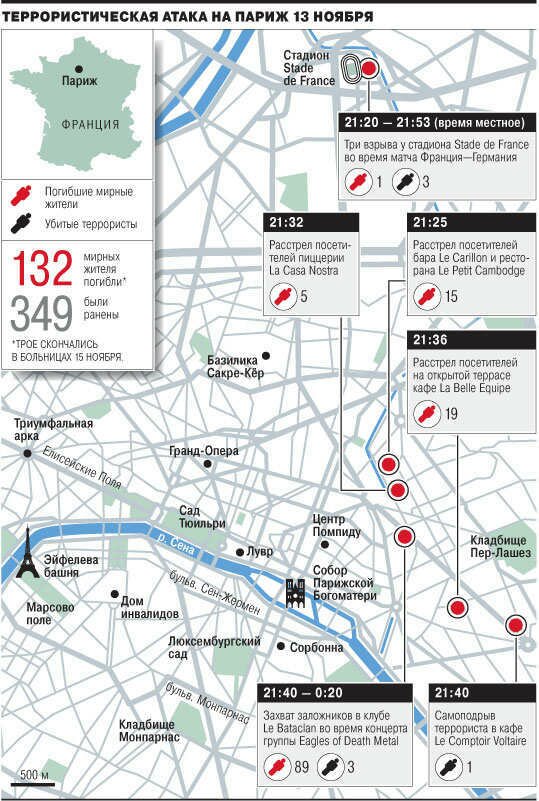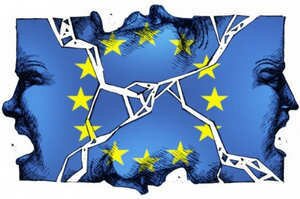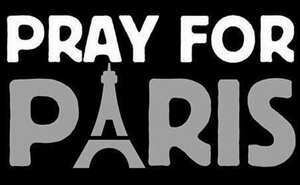
The USA and its allies' uncompromising war against Islamic extremism in the Middle East, as well as Russia's demonstration of such a war in Syria have quite predictably intensified terrorists’ activities in the countries-opponents of this radical Islamic extremism. This is evidenced by the facts of undermining of the Russian passenger plane A321, flight Sharm el-Sheikh — Saint Petersburg, October 31, 2015, in the sky of Egypt (224 dead), and a series of terrorist attacks in Paris on the night of November 14 (about 130 dead, 352 wounded, of which up to one hundred people are seriously injured).
 Responsibility for the attacks in both cases has been claimed by a known extremist organization “Islamic State” (IS), which is actually the main object, against which are aimed the actions of the participants of the international antiterrorist coalition led by the United States and, in particular, the Russian Federation (according to its leadership!), and which has declared jihad against both, western countries, and the same Russia. In this context, the attacks against Russia and France are the obvious manifestation of this jihad of Islamists of the IS. However, in such cases, political scientists, analysts, experts and “professionals of all stripes” always try to find an answer to one question: who benefits most? We will also try to pre-assess the “bloody Friday”.
Responsibility for the attacks in both cases has been claimed by a known extremist organization “Islamic State” (IS), which is actually the main object, against which are aimed the actions of the participants of the international antiterrorist coalition led by the United States and, in particular, the Russian Federation (according to its leadership!), and which has declared jihad against both, western countries, and the same Russia. In this context, the attacks against Russia and France are the obvious manifestation of this jihad of Islamists of the IS. However, in such cases, political scientists, analysts, experts and “professionals of all stripes” always try to find an answer to one question: who benefits most? We will also try to pre-assess the “bloody Friday”.
That is, the aforementioned statement is obvious only at first glance. Cynical as it may sound, but, according to some independent western experts, the above-mentioned manifestation of terrorism actually fully meets the interests of the Russian Federation.
Firstly, a confirmation of the existence of common threats of Islamic terrorism to the West and Russia as illustrated by the resonance terror attacks with mass casualties among the civilian population gives Putin’s regime more opportunities to deepen dialogue with the West and to put an end to international isolation of Moscow.
Secondly, a series of terrorist attacks in France will for sure force the French authorities and leaderships of other European countries to strengthen the protection of their borders, and to resort to tougher immigration policies, which can result in internal barriers in the EU and would undermine the unity of the European Union.
 Thirdly, Russia's military intervention into the Syrian conflict and the growing problems of refugees in European countries, and growth of the threat of terrorism in Europe, will no doubt divert the EU's attention from Russia's military aggression against Ukraine.
Thirdly, Russia's military intervention into the Syrian conflict and the growing problems of refugees in European countries, and growth of the threat of terrorism in Europe, will no doubt divert the EU's attention from Russia's military aggression against Ukraine.
Fourthly, the EU's leaderships' focusing on solving its own security problems will impede the process of Ukraine's European integration, while strengthening of the rigidity of the European migration policy will actually postpone the introduction of a visa-free regime between the EU and Ukraine for an indefinite period.
Russia will certainly take advantage of the situation that arises, to “resume the partnership with the USA and the EU” as a prerequisite for its exit from international isolation, lifting of Western sanctions, and strengthening of its influence on the former Soviet territories.
In such circumstances, Moscow will try to solve the “Ukrainian question” at favorable for itself terms and to achieve its strategic goals in Ukraine by the final breakdown of the process of Ukraine's European integration and returning under the Russian Federation's control, as well as the actual disintegration of the Ukrainian State within the framework of the expected by Moscow West's agreeing to its federalization (including the formal return of the controlled by Russia so-called DPR and LPR into Ukraine).
At this, Russia will try to finally push away the “Ukrainian question” from the view of Western countries and international organizations as such, that “has no special significance for Europe” in the face of increasing threats to European security posed by Islamic extremism. Moscow will accompany its actions by a new active information campaign, accusing Ukraine of “supporting Islamic extremists”, including of “... sending fighters and weapons to terrorist organizations in the Middle East and North Africa”.
 In addition, Russia will have additional opportunities to split the European Union and strengthen the discrepancy between the EU and the United States through the use of Islamic terrorism issues for the development of bilateral cooperation with individual European countries (first of all France, this obviously weaker partner in the tandem FRG-France, but whose ambitions are the greatest in the EU) and the declaration of “the United States' being unable to guarantee security, not only at home (an allusion to the events of September 11, 2001), but also in Europe”.
In addition, Russia will have additional opportunities to split the European Union and strengthen the discrepancy between the EU and the United States through the use of Islamic terrorism issues for the development of bilateral cooperation with individual European countries (first of all France, this obviously weaker partner in the tandem FRG-France, but whose ambitions are the greatest in the EU) and the declaration of “the United States' being unable to guarantee security, not only at home (an allusion to the events of September 11, 2001), but also in Europe”.
This set of circumstances that are of strategic importance for the realization of the vital interests of the Russian Federation, raises quite serious and even arguable suspicion that Moscow may have to do with both, the deaths of the Russian passenger plane over Sinai Peninsula and terror attacks in France. More so as the current Russian President Vladimir Putin, in their opinion, has the experience to solve his political problems with the help of various provocations with mass casualties among civilians.
 As an example, experts mention the provoked by the Kremlin second Chechen war in 1999 with the aim of securing absolute power in Russia by the then Prime Minister of the Russian Federation Vladimir Putin, who later became a permanent ruler of the country. According to them, for that purpose were organized the undermining of houses in Moscow and then — the so-called Wahhabists' attack on Dagestan led by extraordinary Shamil Basayev.
As an example, experts mention the provoked by the Kremlin second Chechen war in 1999 with the aim of securing absolute power in Russia by the then Prime Minister of the Russian Federation Vladimir Putin, who later became a permanent ruler of the country. According to them, for that purpose were organized the undermining of houses in Moscow and then — the so-called Wahhabists' attack on Dagestan led by extraordinary Shamil Basayev.
Putin's achievement of his objectives was paid for by lives of more than 80 thousand Russian citizens on the territory of Chechnya. They were killed by the Russian army during the so-called counter-terrorist operation in the North Caucasus (which is going on there today), but in fact — a contractual war “of the Kremlin regime with its allies in the North Caucasus region”. Massive civilian casualties in Chechnya, as payment for the seizure of power by Putin's regime in Russia, were confirmed by the findings in the course of a secret investigation into the events in the region carried out by a special committee of the State Duma of Russia in 2001. All this has been hidden by the Kremlin and remains on its conscience.

Expressing the full support to the struggle against radical Islamic extremism, expressing sympathy for all the innocent victims, we cannot help asking: so who has benefitted from the “Bloody Friday”?

